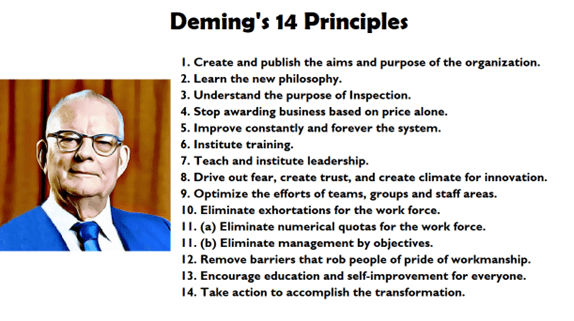Elevating Excellence: Unveiling the 14 Principles of Total Quality Management for Focus Groups
Focus groups serves as vital tool for gathering insights, understanding consumer preferences, and making informed business decisions. In an era of heightened competition and rapidly changing consumer dynamics, ensuring quality and delivering exceptional results has become imperative for focus group companies.
- Customer Focus: A customer-centric approach lies at the heart of TQM. By deeply understanding client needs, expectations, and objectives, Focus group companies tailor their methodologies and techniques, to deliver the highest level of customer satisfaction.
- Leadership Commitment: Effective leadership is paramount in driving a culture of quality within focus group companies. Leaders demonstrate unwavering commitment to TQM principles, provide the necessary resources, and set the example by actively participating in quality improvement initiatives.
- Employee Involvement: TQM recognizes that employees are the foundation of quality within any organization. Focus group companies empower and involve employees at all levels, encouraging their active participation, ideas, and insights to continuously enhance the quality of their work.
- Continuous Improvement: Focus group companies can embrace methodologies such as Lean Six Sigma and Agile practices to identify and eliminate inefficiencies, optimize processes, and continually enhance the effectiveness and efficiency of their operations.
- Process Approach: TQM emphasizes a process-oriented mindset that focuses on optimizing the entire workflow of the Focus group process. By mapping, analysing, and refining processes, our clients can identify bottlenecks, improve collaboration, and ensure seamless execution, resulting in higher-quality outcomes.
- Systematic Decision Making: Focus group companies collect, analyse, and utilize relevant data and metrics to make informed decisions that align with client objectives. This ensures that decisions are based on objective information rather than subjective opinions.
- Supplier Relationships: Suppliers play a vital role in the success of Focus group companies. Building strong relationships with suppliers based on trust, collaboration, and shared goals is crucial for maintaining quality standards throughout the supply chain, from recruitment of participants to the selection of appropriate research tools.
- Training and Development: Investing in the training and development of employees is essential to foster a skilled and knowledgeable workforce. Focus group companies provide regular training opportunities to enhance the capabilities of their employees, enabling them to deliver high-quality services and stay updated with industry trends.
- Transparent Communication: Open and transparent communication is essential in the Focus group processes. TQM emphasizes the importance of effective communication channels that facilitate clear and accurate information exchange among team members, clients, and participants. This ensures that everyone is aligned and working towards the same objectives.
- Benchmarking: Benchmarking enables Focus group to compare their performance against industry standards and best practices. By identifying areas for improvement and learning from successful companies, facilitates the adoption of innovative techniques and strategies to elevate the quality of Focus group research.
- Error Prevention: Preventing errors and quality deviations is more effective than detecting and correcting them. TQM encourages Focus group companies to implement error prevention mechanisms, such as rigorous quality control measures, meticulous planning, and thorough documentation, to minimize errors and ensure high-quality deliverables.
- Employee Recognition and Reward: Recognizing and rewarding employees for their contributions to quality is essential for fostering a culture of excellence. Focus group companies celebrate the achievements of individuals and teams, acknowledging their dedication, expertise, and adherence to quality standards. This boosts morale and encourages continued commitment to quality.
- Long-Term Perspective: TQM emphasizes taking a long-term perspective on quality. Focus group companies do not focus solely on short-term gains but also consider the long-term impact of their decisions and actions. By adopting a strategic approach and cultivating lasting relationships with clients, they can establish a strong foundation for sustained quality and success.
- Community Responsibility: TQM recognizes the importance of community responsibility. Focus group companies engages in ethical practices, respect privacy, and protect the confidentiality of participants’ data. By prioritizing the welfare and rights of participants, companies can build trust, credibility, and long-term relationships within the community.
Embracing the 14 principles of Total Quality Management empowers Focus group companies to revolutionize their approach, enhance the quality of their services, and exceed client expectations. By prioritizing customer needs, involving employees, continuously improving processes, and fostering a culture of excellence, Focus group companies can position themselves as leaders in the industry. Implementing TQM principles enables us to deliver exceptional insights and drive meaningful impact for clients in an ever-evolving business landscape.
